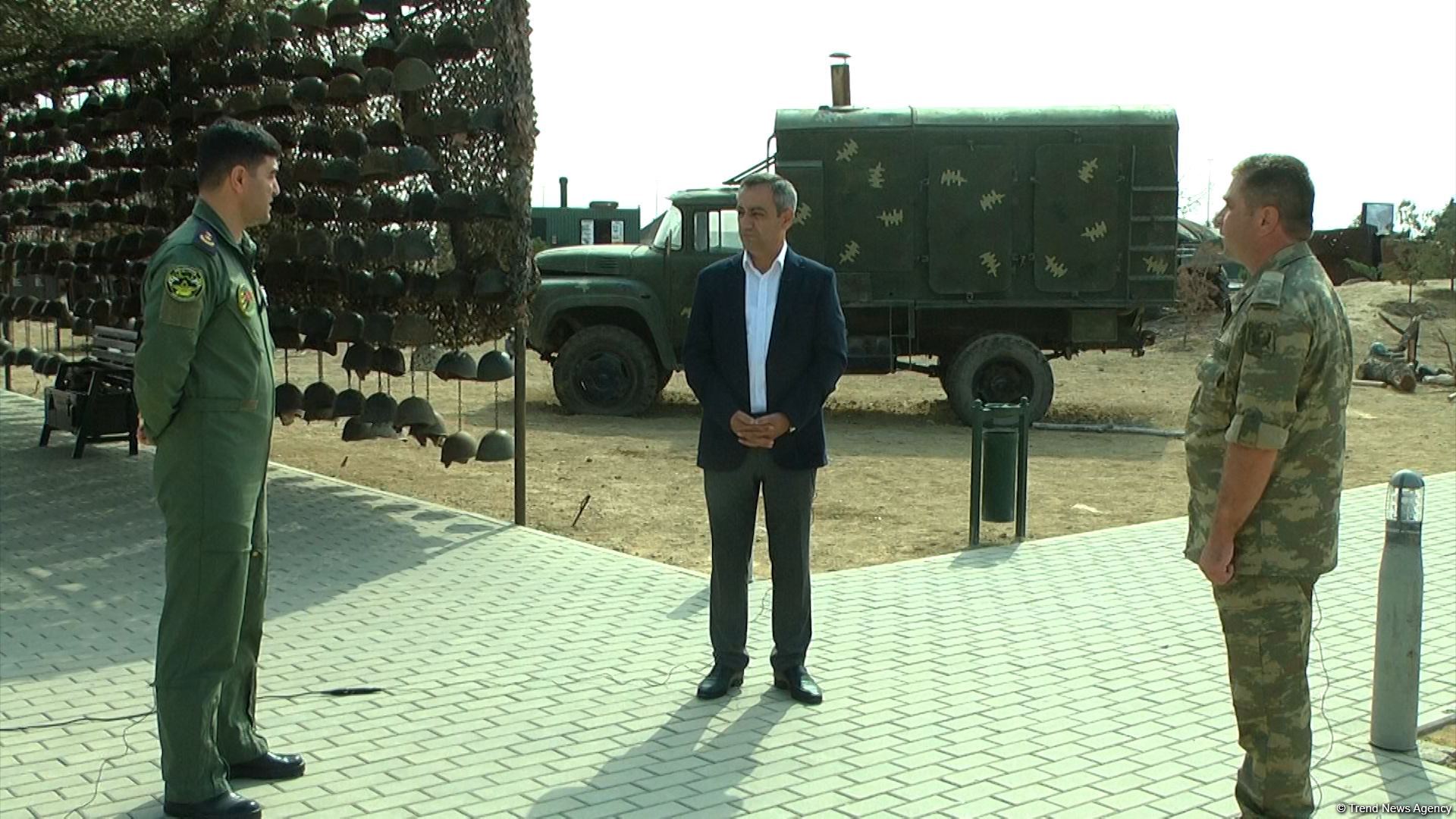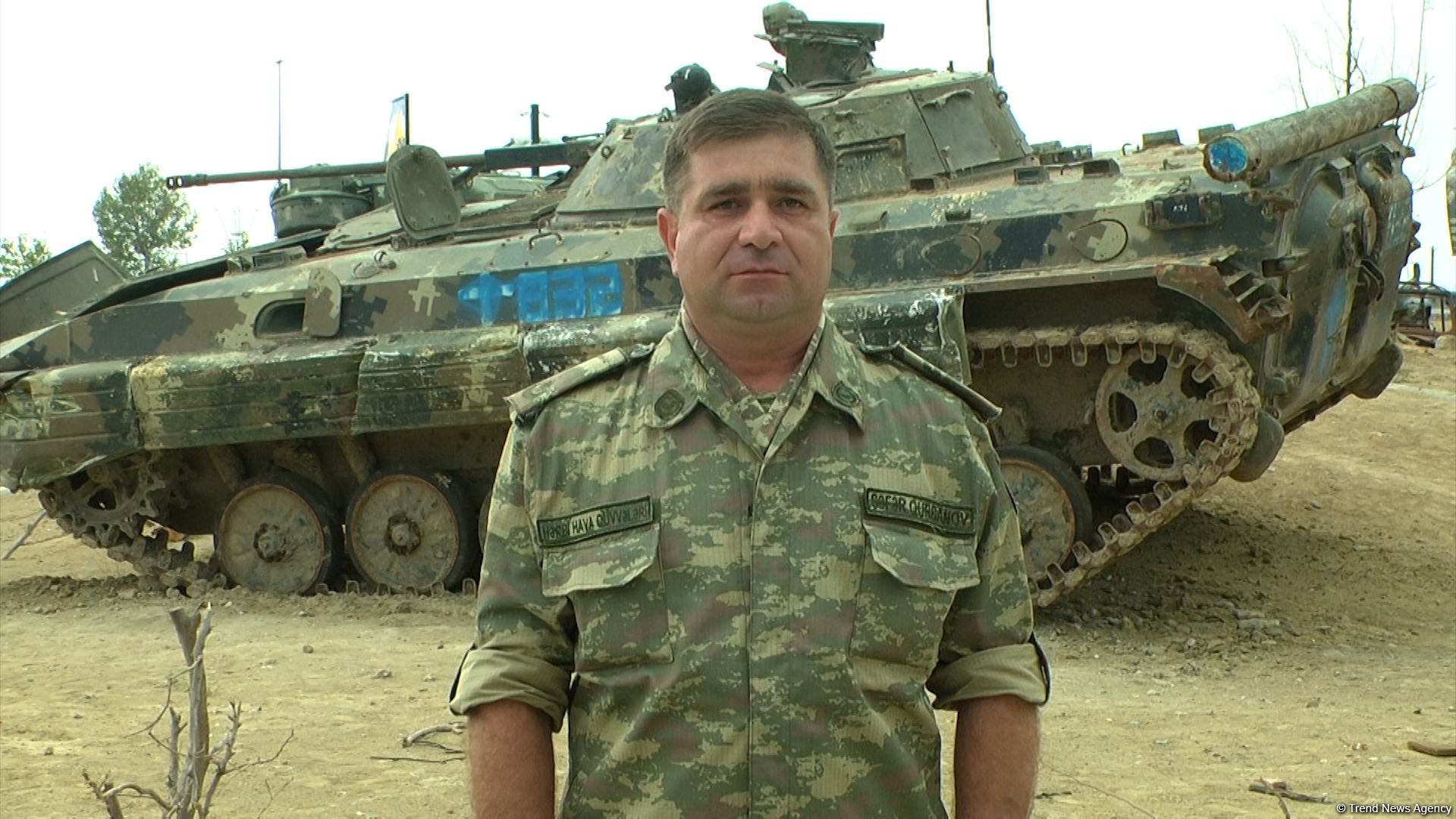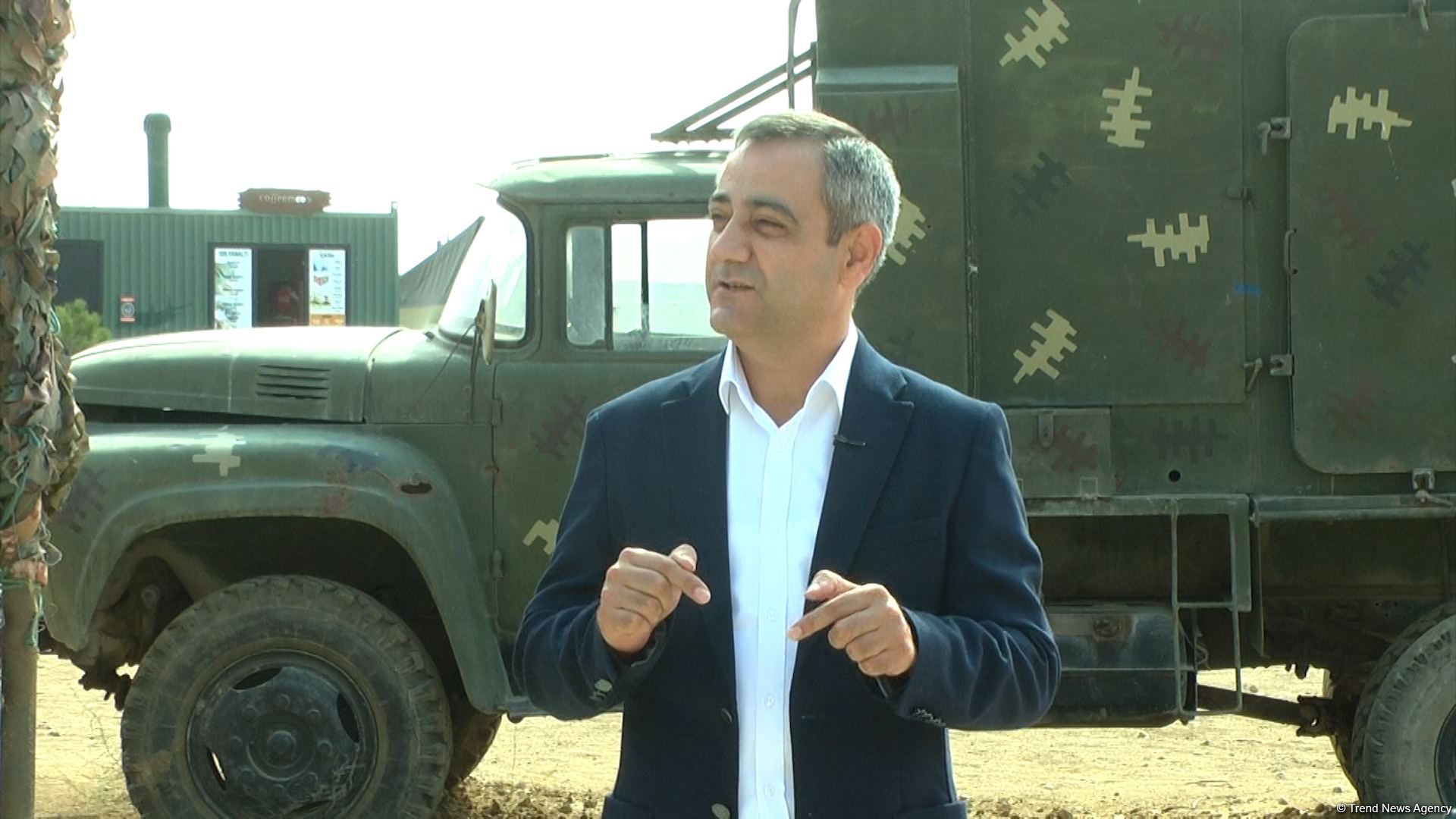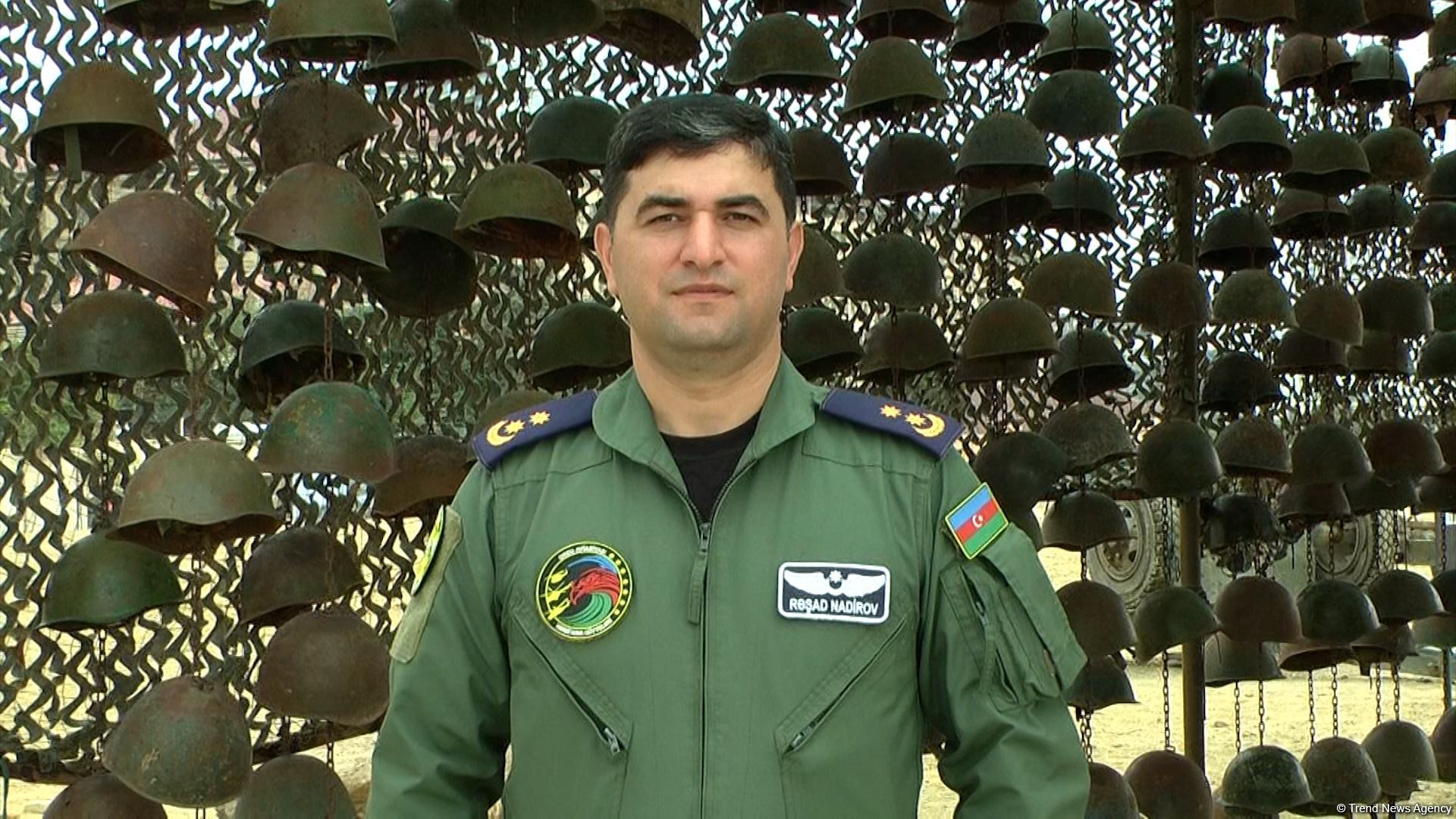BAKU, Azerbaijan, Oct.1
Trend:
Officers of the Air Force of Azerbaijan, Heroes of the second Karabakh war Rashad Nadirov and Safar Gurbanov spoke to Trend about the participation of Azerbaijan's Air Force in the war.
Nadirov noted that on September 27, 2020, the Azerbaijani army launched a counter-offensive operation to suppress the military provocations committed by Armenia.
"We took part in the battles to destroy the advancing enemy ground forces, supported the counter-offensive actions of our troops and special forces. The task was set before us to provide air support to our forces who participated in the counteroffensive in the Fuzuli, Jabrayil and Gubadly directions," Nadirov said. "Our main missions consisted of destroying fortifications created by Armenia in the Fuzuli and Jabrayil directions, suppression of the forces stationed there, as well as artillery and tank units providing fire support. This created conditions for our special forces to break through and advance our other units in the above directions."
"In order to prevent the supply of munitions to Armenian armed forces and prevent their attempts to redeploy during retreat, we dropped bombs on their positions. Our goal was to destroy the forces’ command posts, and we effectively carried out the task by delivering crushing high-precision strikes," Nadirov said.
Safar Gurbanov stressed that in accordance with the order of President, Supreme Commander-in-Chief of the Armed Forces Ilham Aliyev, the main goal of the Azerbaijan Air Force was to gain air supremacy and destroy Armenian aircraft.
"The Armenian side, which suffered a heavy defeat on the battlefield, launched missile strikes, especially on strategic and civilian targets, as well as on densely populated areas. Our individual goal was to protect the reservoir and power plant in Mingachevir from the air," Gurbanov said.
"Thus, the Azerbaijani Air Force played an exceptional role in those battles. We constantly conducted training flights before the war. In general, the combat tactics used by our army showed that these trainings came in handy," Gurbanov concluded.
Following over a month of military action to liberate its territories from Armenian occupation from late Sept. to early Nov. 2020, Azerbaijan pushed Armenia to sign the surrender document. A joint statement on the matter was made by the Azerbaijani president, Armenia's PM, and the president of Russia.
A complete ceasefire and a cessation of all hostilities in the zone of the Karabakh conflict were introduced on Nov. 10, 2020.
The conflict between the two South Caucasus countries began in 1988 when Armenia made territorial claims against Azerbaijan. As a result of the ensuing war, the Armenian Armed Forces occupied 20 percent of Azerbaijan, including the Karabakh region and seven surrounding districts. The 1994 ceasefire agreement was followed by peace negotiations.













